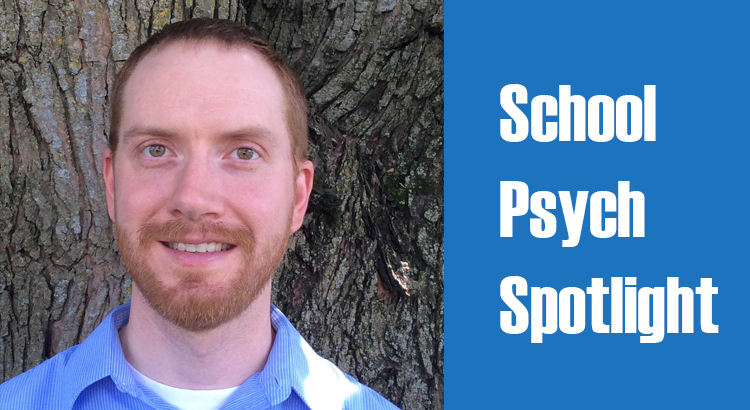Austin Beer is a veteran (11 years) school psychologist currently working for Grant Wood AEA, although he also worked for Great Prairie AEA once upon a time. Austin’s current role with Grant Wood AEA is as a Child Find Lead and Mentoring and Induction Lead. This means that Austin spends his time supporting agency and LEA staff in their use of Child Find data to understand current evaluation practices, the quality of services, and to identify learning and professional practices that need improvement. He also supports new staff through mentoring and new staff professional development. Through his mentoring experiences Austin has developed some well defined advice for new school psychologists. He stated, “Stick with it. Understand what sphere of influence you have, and where you want to spend your energy and capital at the current moment to have the most impact. Never give up, because on the other side of a challenging teacher, administrator, IEP team, or parent is a student in need of targeted, high quality instructional practices, which occur when teams work together analyzing data to understand student needs.”
Austin began his post-secondary experiences at Kirkwood Community College where he received his A.A. He then transitioned to Coe College where he graduated with his B.A. in Psychology. Austin received his MAE and Ed.S. degrees from the University of Northern Iowa School Psychology Program. Austin has stayed close to those roots he began putting down all those years ago. He lives in Cedar Rapids with his wife, son (Liam) and two yellow labs. While his professional interests focus on integration of technology in education, his down time is spent in nature. He has a personal goal to do more kayaking this year. He also enjoys building; he stated, “I find that so much of what we do as psychologists in schools is consultative and indirect; often the effects of our work are not tangible or observable for many years. So, I find that having projects where there is a product fulfilling.”
Austin started as a school psychologist working in area schools just as most of us do, and he still has some of these same responsibilities in his current role with Grant Wood AEA. Although, now that his role has transitioned to more of a leadership responsibility, he spends less time in the Building Representative role and more time supporting agency wide learning for AEA staff working in special education. With respect to the Building Representative model, he stated, “I love it and prefer it. A building rep is often the first contact point for AEA services as well as the link to additional support from the AEA within a building. Building reps are often responsible for supporting LEA staff and parents for the majority of the day to day support in special education. This includes systems consultation, evaluations, ongoing IEP support, instructional recommendations, reviewing progress data, helping teams interpreting bench marking and progress data, FBAs and BIP, CPI support, TEACCH support, the list goes on and on.”
It is clear that Austin loves his work. When asked what he enjoys most he said, “I enjoy problem solving and being part of finding solutions for challenges our students, schools, support agencies, and state face in meeting the ever changing needs of students and educators. I enjoy the variety of opportunities to impact student learning. Whether the work is at an individual student level of problem solving, or understanding challenges at the classroom, or system level.” However, there are always improvements to be made in any position. Austin stated that he would like to see the education of other professionals and parents with whom school psychologists work revised some. He feels that students may have greater access to high quality, data driven instructional practices if these vital individuals had a similar understanding of these practices and systems. He stated, “Instructional integrity is the most impactful variable I see leading to better student outcomes. Especially, for at risk and struggling students. In my practice I would like to have additional coaching tools, strategies, and methods to ensure that teachers have the resources, skills, and drive to implement high quality instructional supports for students.”
Communication is important to Austin. When asked what advice he would give to new school psychologists, he added to his thoughts on persistence with communication as a necessary skill. “I can’t emphasize communication enough and follow through. Never assume anything 🙂 Always check in with teachers and administrators you’ re working with each time you are in a building to see what support they need. Understand the communication preferences of the teachers and administrators you work with. Not everyone, uses or likes e¬mail.”
In closing, Austin added, “I want to emphasize the wonderful agency that I work for. The leadership at Grant Wood AEA understands the specialization, breadth, and depth of knowledge, School Psychologists bring to support LEA needs.”
Thank you, Austin, for all you do for kids, schools, and school psychology in Iowa!
